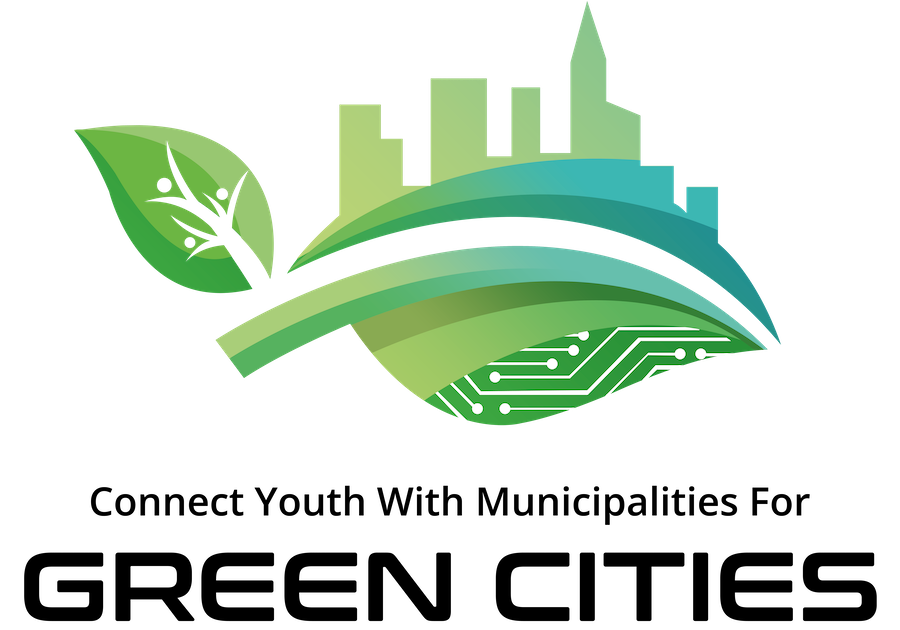Welcome to the future of urban living
“Sustainable Green Cities (Smart City 3.0)” project looks at how youth participation can help make cities more eco-friendly, resilient, and thriving places to live. As the world deals with issues like rapid urbanization and climate change, it’s essential to get the next generation involved in making the cities of the future. In this project, we’ll explore innovative strategies that unlock the potential of young minds, empower them to take charge of their future and contribute to the development of sustainable green cities. Learn about today’s youth’s important role in making the environment more sustainable, bringing people together, and promoting smart urban planning. If you like cities, are an activist for the environment, or are just interested in reading, join us on this exciting journey to make our cities living, breathing examples of sustainable development.

L4Y Learning For Youth GmbH
L4Y Learning for Youth, empowers young individuals by promoting environmental protection and sustainable green cities. Through innovative projects, skill enhancement, and fostering intergenerational collaboration, L4Y inspires future leaders to create eco-friendly, inclusive urban landscapes for a better tomorrow.
Citizens in Power
CIP aims at the development of different ramifications of entrepreneurship, education and democratic dialogue in Cyprus and abroad. To achieve those targets CIP has established an ongoing collaboration with the majority of Cypriot leading universities, NGOs and research organizations in Cyprus, especially for the development of innovative projects and international trainings or seminars as well as for the deployment of pedagogical educational material, by primarily using web platforms and other technological innovations.
Walktogether
Walktogether is focused on community based projects and together with our trainers and youth workers we work on making non-formal education part of the formal education. We work with different EU programs and we are developing training, courses, exchanges and other curricula based on topics that focus on social – economic development and on the interest of the youth and adult learners, including people with fewer opportunities (cultural and social obstacles).
Kean
Ultimate goal of KEAN is upgrading the lives of young people and vulnerable social groups, combating social exclusion and poverty, promoting a better organized society with respect for human rights and the environment and promoting volunteering spirit and familiarity with the new technologies.
TOG
Community Volunteers Foundation (TOG) empowers youth and contributes to their personal development by encouraging them to participate in the social responsibility projects as volunteers since it was founded as non-profit organization in 2002. TOG, believing that youth has potential and energy to create solutions for social and environmental problems, trains university students about social responsibility and supports them to design and implement social responsibility projects.
KKKE
Environmental Association Kaán Károly was established in 1994 as the first and currently active association in Zala country and the region. The association was created to help provide possible solution to environment and nature conservation problems. The most crucial objective is to substantiate the children’s perspectives (including kindergartners, primary schools, secondary schools) and adults.
Funded by the European Union. Views and opinions expressed are however those of the author(s) only and do not necessarily reflect those of the European Union or the European Education and Culture Executive Agency (EACEA). Neither the European Union nor EACEA can be held responsible for them.
Erasmus+ Project Results Platform
Here is the link to the Erasmus+ Project Results Platform of the project.
EU-funded project
Youth Participation for Developing Sustainable Green Cities (2022-1-DE04-KA220-YOU-000085135)
L4Y Learning For Youth GmbH is coordinating the project with the partners Citizens in Power, Toplum Gönüllüleri Vakfı, Kean, Walktogether, Kaán Károly Környezetvédelmi Egyesület
Training Structure
Unit 1: Introduction to Smart City 3.0
- 1.1 Smart area concepts (general smart city knowledge) –
The concept, development and history of smart cities - 1.2 European Union legal environment in brief (and SDG’s)
- 1.3 Challenges of the urban environment
- 1.4 Smart city strategic planning and management
- 1.5 Urban design
Unit 2: Thematic subsystems/pillars
Unit 3: Technology usage as a solution
- 3.1 Concepts and tools of digitalisation (general digitalisation knowledge)
- 3.2 Digital infrastructure, Geo-Informatics
- 3.3 Advanced technologies of the smart cities
- 3.4 Cyber security
- 3.5 AI as the new key elements in the future smart cities
Unit 4: Good examples worldwide
Smart City Concept
Smart City 3.0 is an evolved concept of smart cities, building upon the previous two generations of smart city models. It focuses on using advanced technology, making decisions based on data, and getting people involved to make sustainable, resilient, and inclusive cities that improve the quality of life for everyone there. The three generations of smart city concepts can be summarized as follows:
Smart City 1.0
The first generation of smart cities focused primarily on implementing technology and infrastructure to improve city operations and services. It included the integration of ICT (information and communication technology) and IoT (Internet of Things) devices to manage resources, monitor infrastructure, and optimize urban systems like transportation and energy
Smart City 2.0
The second generation of smart cities expanded on the technological foundation laid by Smart City 1.0 by emphasizing data-driven decision-making and the integration of big data analytics. This approach aimed to improve city planning, predictive maintenance, and overall efficiency by analyzing data collected from various urban systems and drawing insights to optimize processes.
Smart City 3.0
The latest concept of smart cities is centred around inclusive, citizen-centric urban development. It goes beyond technology and data-driven decision-making by prioritising the engagement of citizens in the planning, implementation, and evaluation of smart city projects. This approach aims to create more sustainable and resilient cities by focusing on social equity, environmental sustainability, and economic growth. Key components of the Smart City 3.0 concept include:
- Citizen engagement is actively involving citizens in designing and implementing smart city initiatives, ensuring that their needs and preferences are considered.
- Collaboration, encouraging partnerships among governments, the private sector, academia, and civil society to drive innovation and share resources.
- Sustainability and resilience, focusing on long-term environmental sustainability and resilience to climate change and other global challenges.
- Social equity: Addressing social inequalities and promoting inclusive urban development for all citizens, regardless of their background or socio-economic status.
- Integrated solutions: Implementing holistic solutions that address multiple urban challenges simultaneously, considering the interconnectivity of urban systems and processes.
Overall, the Smart City 3.0 concept is about harnessing the power of technology, data, and citizen engagement to create urban environments that are not only efficient but also sustainable, resilient, and inclusive.






